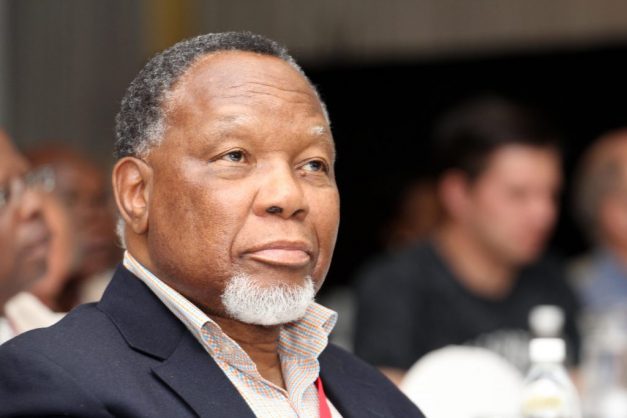South Africa’s Deputy President, Mr Kgalema Motlanthe, delivered a public lecture at the Centre for Human Rights. The event was organised by the Centre for Human Rights to mark 15 years of the Master’s degree programme in Human Rights and Democratisation in Africa. The programme is presented by the Centre for Human Rights and 13 other African universities. At the ceremony, the Centre for Human Rights also remembered an alumnus of the programme Mr Julius Osega who passed away in 2006 while on a peacekeeping mission in Darfur, Sudan. More than 200 guests attended the public lecture.
![]() Download Mr Kgalema Motlanthe's lecture
Download Mr Kgalema Motlanthe's lecture
The guests included ambassadors, members of the diplomatic corps, funders of the programme, senior management of the University of Pretoria and members of the wider community of the University of Pretoria.
The Deputy President’s lecture was titled “Human rights and democratisation in Africa”. The focus of the lecture was on the debates around the International Criminal Court (ICC) and its relationship with Africa. In his lecture the Deputy President was of the view that the ICC can best serve Africa’s judicial interest as a complementary organ. He argued that Africa should be given an opportunity to lead the way in addressing instances of gross human rights violations. He was of the view that Africa needed its own Court, a Court that would be “vested with universal jurisdiction over the three core international crimes of genocide, crimes against humanity and war crimes”.
Such a Court he argued would help to bridge the widening gap between Africa and the ICC. He was of the view that the manner in which power and interests are exercised in the world was largely unipolar and created greater tensions saying “[c]onsequently, the interests of global powers are presented as the natural advancement of the human race, promotion of democracy, the struggle against totalitarianism and so on. To pretend that these features of our historical landscape do not exist is as good as believing that the moon was made of cheese!”
The unipolar approach to world politics was also affecting the manner in which the ICC was being perceived and on this he said “[c]onsistent with this understanding of the patterns of history, some have argued that the ICC as a novel global conception of justice has not been able to disentangle itself from these perceptions of insidious machinations. In consequence, and most unfortunately, the ICC is beginning to be seen as transnational legitimization of hegemony”.
He concluded by indicating that he supported the ICC but looked forward to the day when it worked hand in hand with an African Court that has a wider jurisdiction to deal with serious violations of human rights.
The 2014 Master’s Class, consisting of 13 women and 13 men from 23 African countries, posed some questions to the Deputy President.
Having started with its first intake in 2000, the Master’s programme in 2014 marks 15 years of existence. The number of graduates of the programme stands at 401, drawn from 38 countries. The alumni of the programme work in academia, civil service, national and international non-governmental organisations, international organisations such as the African Union Commission and the United Nations,
Over the years the programme has been mainly funded by the European Union, the German Academic Exchange Services, Open Society Foundation and the Governments of Netherlands, Finland and Norway.


